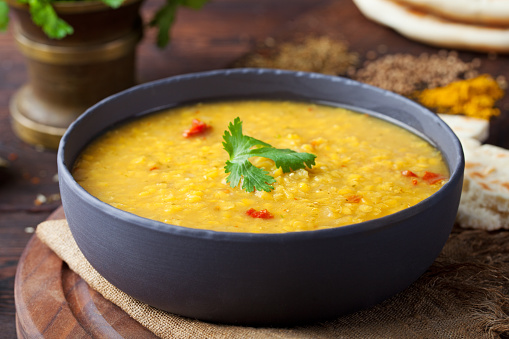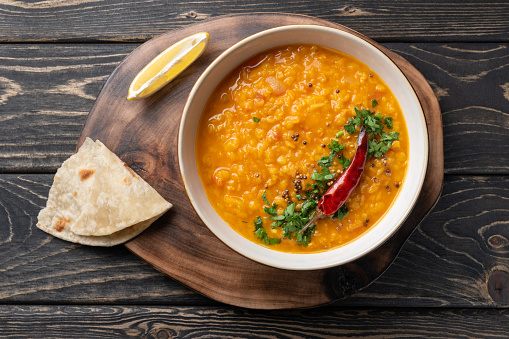Masoor dal, also known as red lentils, is a type of legume that is popular in Indian cuisine. It is high in protein and low in fat, making it a healthy choice for those looking to add more plant-based protein to their diet. In this article, we will discuss the nutritional value of masoor dal per 100g and whether or not it is a healthy choice for you.
First, let’s take a look at the nutritional value of masoor dal per 100g. According to the United States Department of Agriculture (USDA), 100g of masoor dal contains the following nutrients:
Protein: 26g
Fat: 0.4g
Carbohydrates: 60g
Fiber: 15g
Vitamin B1 (thiamin): 0.6mg
Vitamin B3 (niacin): 2mg
Vitamin B6 (pyridoxine): 0.2mg
Folate: 230mcg
Iron: 5.4mg
Magnesium: 120mg
Phosphorus: 180mg
Potassium: 558mg
Zinc: 3.2mg
As you can see, masoor dal is an excellent source of protein and fiber. It is also a good source of several important vitamins and minerals, including folate, iron, and magnesium.
But what about the health benefits of masoor dal? One of the main benefits of masoor dal is that it is a low-fat, plant-based source of protein. This makes it a good choice for those who are trying to reduce their intake of animal-based protein or who are following a vegetarian or vegan diet.
In addition to its protein content, masoor dal is also high in fiber. Fiber is important for maintaining bowel regularity and aiding in digestion. It can also help to lower cholesterol levels and reduce the risk of heart disease.
Masoor dal is also a good source of several important vitamins and minerals. For example, it is rich in folate, which is important for proper brain function and the production of red blood cells. It is also a good source of iron, which is necessary for the production of red blood cells and the transport of oxygen throughout the body.
In terms of its potential drawbacks, masoor dal does contain relatively high levels of carbohydrates. While this is not necessarily a problem for most people, those who are following a low-carb diet may want to be mindful of their intake of masoor dal.
Overall, masoor dal is a healthy choice for most people. Its high protein and fiber content, along with its variety of vitamins and minerals, make it a nutritious addition to any diet. As with any food, it is important to consume masoor dal in moderation as part of a well-balanced diet.

 Home
Home Health
Health Diet & Nutrition
Diet & Nutrition Living Well
Living Well More
More












